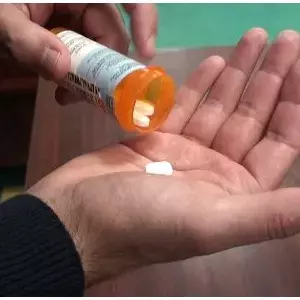- Home
- Medical news & Guidelines
- Anesthesiology
- Cardiology and CTVS
- Critical Care
- Dentistry
- Dermatology
- Diabetes and Endocrinology
- ENT
- Gastroenterology
- Medicine
- Nephrology
- Neurology
- Obstretics-Gynaecology
- Oncology
- Ophthalmology
- Orthopaedics
- Pediatrics-Neonatology
- Psychiatry
- Pulmonology
- Radiology
- Surgery
- Urology
- Laboratory Medicine
- Diet
- Nursing
- Paramedical
- Physiotherapy
- Health news
- Fact Check
- Bone Health Fact Check
- Brain Health Fact Check
- Cancer Related Fact Check
- Child Care Fact Check
- Dental and oral health fact check
- Diabetes and metabolic health fact check
- Diet and Nutrition Fact Check
- Eye and ENT Care Fact Check
- Fitness fact check
- Gut health fact check
- Heart health fact check
- Kidney health fact check
- Medical education fact check
- Men's health fact check
- Respiratory fact check
- Skin and hair care fact check
- Vaccine and Immunization fact check
- Women's health fact check
- AYUSH
- State News
- Andaman and Nicobar Islands
- Andhra Pradesh
- Arunachal Pradesh
- Assam
- Bihar
- Chandigarh
- Chattisgarh
- Dadra and Nagar Haveli
- Daman and Diu
- Delhi
- Goa
- Gujarat
- Haryana
- Himachal Pradesh
- Jammu & Kashmir
- Jharkhand
- Karnataka
- Kerala
- Ladakh
- Lakshadweep
- Madhya Pradesh
- Maharashtra
- Manipur
- Meghalaya
- Mizoram
- Nagaland
- Odisha
- Puducherry
- Punjab
- Rajasthan
- Sikkim
- Tamil Nadu
- Telangana
- Tripura
- Uttar Pradesh
- Uttrakhand
- West Bengal
- Medical Education
- Industry
Mindful intervention shows promising result in reducing opioid misuse and chronic pain

Mindfulness-Oriented Recovery Enhancement (MORE) intervention can lead to sustained improvements in opioid misuse and chronic pain symptoms, a recent trial published in JAMA Internal Medicine has shown.
The researchers, Eric L. Garland et. al, also noted that the intervention led to a reduction in opioid dosing, emotional distress, and opioid craving compared with supportive group psychotherapy.
Long-term opioid therapy(LTOT) for the treatment of chronic pain is common in primary care settings.
However, the risks including opioid misuse and opioid use disorder are a huge concern. Approximately 25% of individuals receiving LTOT misuse opioids.
This may be defined as aberrant drug-related behaviors which are inconsistent with prescription directions.
To combat the opioid crisis, guidelines from the Centers for Disease Control and Prevention have encouraged clinicians to consider nonpharmacologic therapies, such as mindfulness.
Mindfulness-Oriented Recovery Enhancement (MORE)unites mindfulness training, cognitive-behavioral therapy (CBT), and principles from positive psychology into integrative group therapy to target the reward dysregulation underpinning chronic pain and opioid misuse.
The trial aimed to evaluate the efficacy of Mindfulness-Oriented Recovery Enhancement (MORE) for the reduction of opioid misuse and chronic pain.
This interviewer-blinded randomized clinical trial enrolled patients from primary care clinics in Utah between January 4, 2016, and January 16, 2020. The study included 250 adults with chronic pain receiving long-term opioid therapy who were misusing opioid medications.
Treatment with MORE or supportive group psychotherapy (control condition) across 8 weekly 2-hour group sessions was done.
The researchers found that the reduction in opioid misuse through the 9-month follow-up period in the MORE group was twice as compared to the supportive psychotherapy group.
They also reported other findings mentioned below:
1. At 9 months,36 of the 80 participants (45.0%) in the MORE group were no longer misusing opioids compared with 19 of 78 participants (24.4%) in the supportive psychotherapy group.
2. Mixed models demonstrated that MORE was superior to supportive psychotherapy through months of follow-up for pain severity and pain-related functional interference.
3. Participants in the MORE group reduced their opioid dose to a greater extent than those in the supportive psychotherapy group.
4. The MORE group also had lower emotional distress and opioid craving.
"By integrating mindfulness with reappraisal and savoring techniques, the MORE intervention aimed to restructure reward processing from valuing drug-related rewards to valuing natural rewards, a therapeutic focus that is distinct from that of other mindfulness-based interventions, such as mindfulness-based stress reduction," the authors remarked.
B.Sc Life Sciences, M.Sc Biotechnology, B.Ed
Isra Zaman is a Life Science graduate from Daulat Ram College, Delhi University, and a postgraduate in Biotechnology from Amity University. She has a flair for writing, and her roles at Medicaldialogues include that of a Sr. content writer and a medical correspondent. Her news pieces cover recent discoveries and updates from the health and medicine sector. She can be reached at editorial@medicaldialogues.in.
Dr Kamal Kant Kohli-MBBS, DTCD- a chest specialist with more than 30 years of practice and a flair for writing clinical articles, Dr Kamal Kant Kohli joined Medical Dialogues as a Chief Editor of Medical News. Besides writing articles, as an editor, he proofreads and verifies all the medical content published on Medical Dialogues including those coming from journals, studies,medical conferences,guidelines etc. Email: drkohli@medicaldialogues.in. Contact no. 011-43720751


